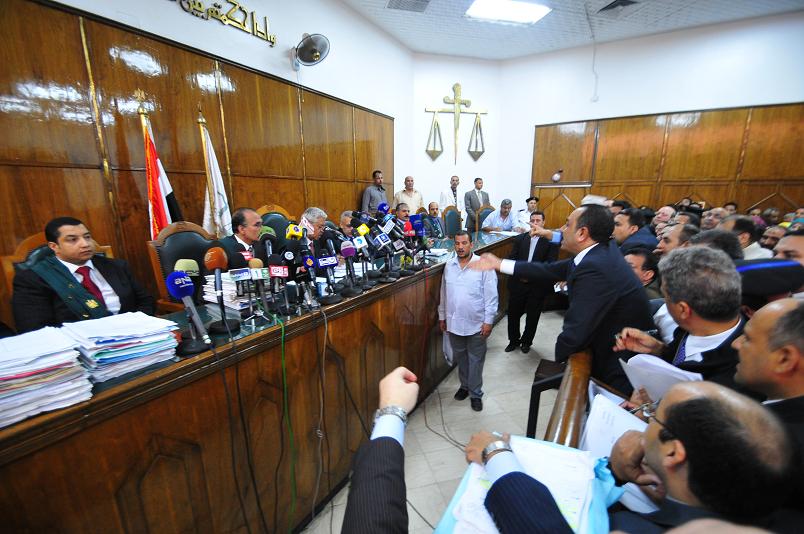During a conference on Thursday, Filippo Grandi, head of the United Nations High Commissioner for Refugees (UNHCR), praised the outcome of his meeting with President Abdel Fattah Al-Sisi, foreign, interior, health, and education ministers, regarding the issues of the refugees living in Egypt.
Grandi started his speech saying that the number of refugees and displaced people worldwide has reached 65 million people, a figure that is unprecedented and has not been reached since the end of World War II.
It is important to note that 42% of the 65 million refugees are from the Arab region, which currently is witness to several active conflicts taking place in Syria, Yemen, Iraq, and Libya.
During his meetings with Egyptian officials, Grandi gladly expressed his appreciation for Egypt’s openness to receive refugees and its generosity towards them by not closing the door despite its problems. He also commended the Egyptian government on its willingness to continue providing services to them, especially in the education and health sectors.
The commissioner discussed with the officials the need for education for refugee children who do not speak Arabic.
He said that Egypt receives few resources to help refugees; therefore, he called on the other nations to support Egypt’s efforts to provide health and education services to refugees, as well as manage the issue of immigration and tighten border control.
Grandi explained that Egypt is a significant destination for refugees. A large number of refugees use Egypt as a transitional region in order to continue on their way to European countries, making Egypt an important host country. He also stressed that Egypt should continue its efforts to solve conflicts in the Arab region.
Regarding Palestinian refugees, he said that while Jordan and Lebanon have assisted with providing for Palestinian refugees, the Egyptian government is the one assigned to view the issues with the UNHCR.
Prior to his visit to Egypt, Grandi visited Iraq, where he and his colleagues discussed the situation of civilians impacted by military operations, and ways the government could protect them. Grandi noted during his speech that Baghdad and Kurdish authorities in Erbil have assured the UNHCR that they will offer the civilians protection and will ensure their safe passage.
Following his arrival to Egypt, he was informed that several Iraqis fleeing the region had reached Kurdish areas in Erbil and 900 have fled to Syria, which may not lead to a reprieve for them, referring to the dangerous situation that also exists in Syria.
Grandi explained that 90% of the refugees do not live in privileged countries or conditions, and many prefer to travel to other developing nations that are willing to accept them. Conversely, travelling to more economically developed nations has become increasingly difficult as many countries are beginning to adopt stricter immigration policies that hinder them. The United Nations (UN) has called upon world governments to assist in this crisis and to provide resources to aid in the humanitarian effort. Although several western nations have agreed, many refugees are beginning to prioritise immigration to developing nations in hopes of utilising more immediately accessible resources.
Moreover, the UNHCR also noted that those affected by war would not stop relying on charity and humanitarian assistance; however, it is now necessary to find a way to resolve the crisis. He said: “The security council could not unite the major countries in order to reach a solution, but in any case we are trying to invest in the host countries, and to provide shelter, medicine, and foodstuff inside the refugee camps, and processing before the start of winter.”
He concluded saying that he was disappointed by the European countries’ decision to solve the refugee flow by placing restrictions on immigration, saying that it is first necessary to look at the factors that increased the flow of refugees.
Grandi signed a Memorandum of Understating (MoU) with the health minister that outlines potential ways to make medical care a priority for asylum seekers in Egypt and those who are registered at the UN agency, with $1.1 m allocated for this. The services include emergency first aid, post-natal care for new babies, and maternal care.
The Health Ministry announced in a statement on Wednesday that the UNCHR will contribute with 70 baby incubators and 20 respiratory machines to be distributed in Giza, in addition to 15 intensive care unit beds in Cairo, specifically in Mounira hospital, which will receive the biggest share of beds. Grandi said that the cooperation between the UNCHR and Egypt’s Health Ministry started in 2012 amid the Libyan and Syrian conflicts.
During his visit, Grandi discussed the refugee situation in Egypt, the Middle East and North Africa with high-level Egyptian officials, the secretary general of the League of Arab States, and UNHCR partners. He also met with a group of African refugees to discuss their situation in Egypt.
During his meeting with Egyptian Foreign Affairs Minister Sameh Shoukry, the two discussed views on Egypt’s efforts in solving the regional crises and what progress had been reached regarding the refugee and migrants declaration adopted in the UN general assembly last September.



